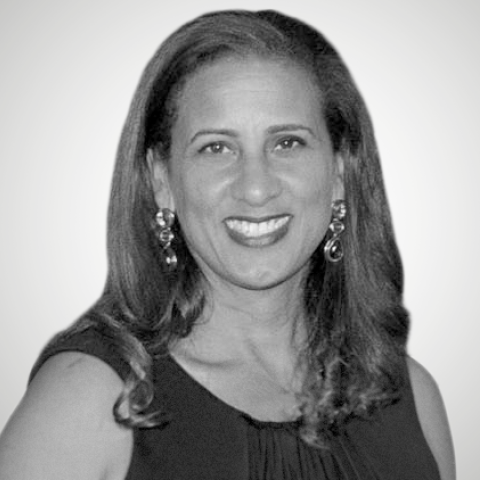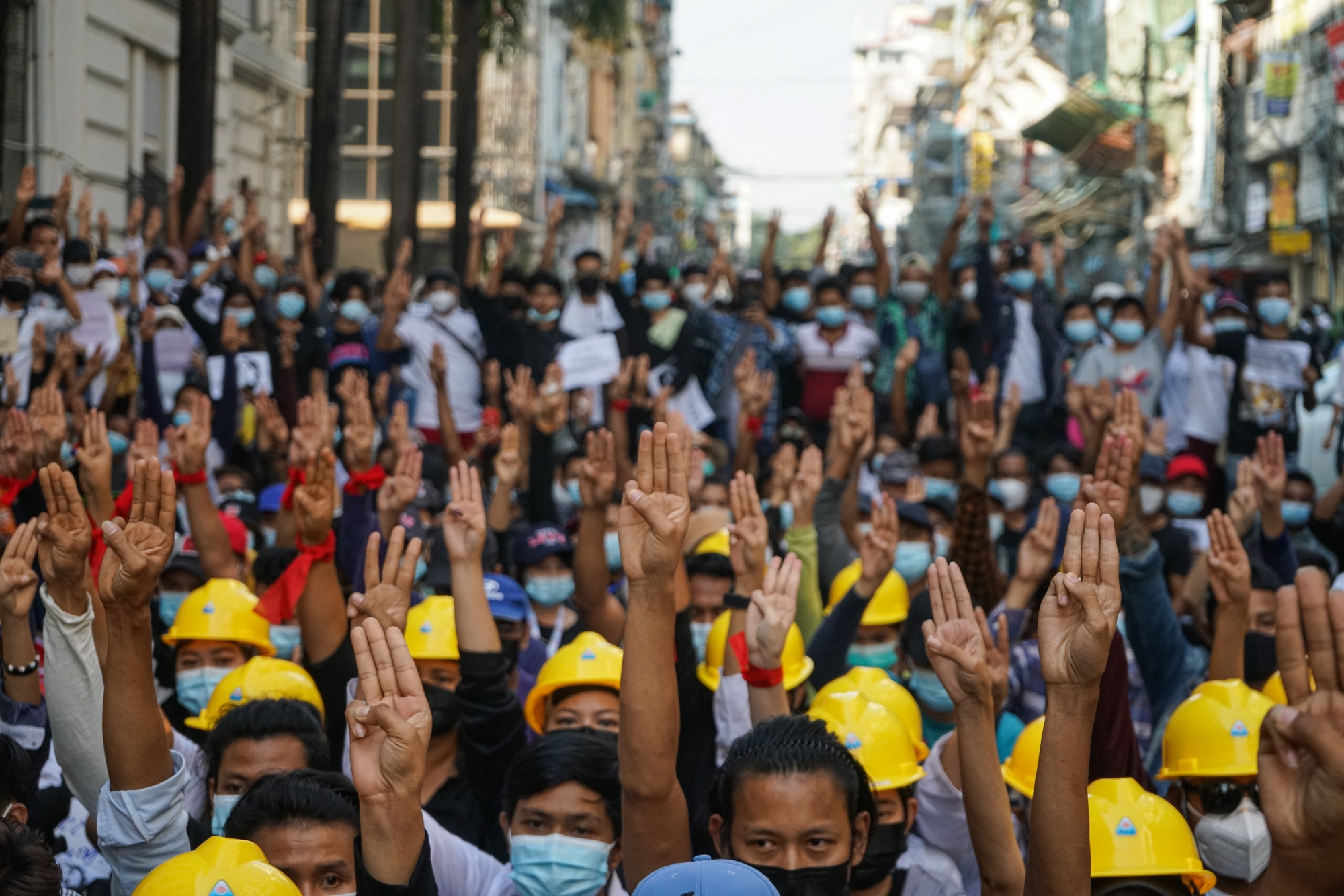

Promoting a Global Democratic Landscape
People gather in Myanmar to protest the February 1, 2021 military coup. (Image credit: Stringer/Anadolu Agency via Getty Images)
Democracy is the best system of government for protecting human rights and advancing peace, economic prosperity, and freedom, because it is the only one in which governments are accountable to their people. While no democracy is perfect in practice, the system provides citizens with effective tools for course correction and improvement.
In the more than 50 years since Freedom House began monitoring and quantifying global political rights and civil liberties in the annual Freedom in the World report, there has been ample evidence that popular demand for freedom is strong, and that democratic progress is always possible.
The report has shown that people from every region and culture want to exercise their fundamental rights and are capable of sustaining democratic movements even under extremely difficult circumstances.
However, the possibility of progress does not make it inevitable. In every region of the world, democratic values and institutions are under attack by those who seek unchecked power to advance their own narrow interests. As a consequence, the percentage of people worldwide living in Free countries has been in decline for much of the last two decades.
This decline has resulted in a more hostile environment for individual countries’ democratization efforts and created openings for ambitious illiberal leaders.
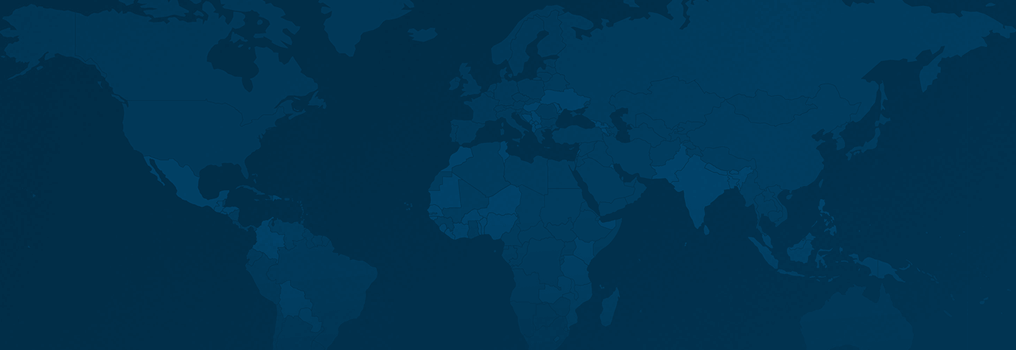
Explore Key Moments from 50 Years of Freedom in the World
What is Democracy?
The word democracy has been applied, rightly or wrongly, to states of all types, from the “Democratic People’s Republic” of North Korea to the freest countries in Scandinavia. Misappropriation of the word is a testament to democracy’s widespread appeal. But this unfortunate practice causes confusion. It allows autocrats to both claim democratic credentials and argue that actual democracies are ineffective or hypocritical. The term becomes a distraction from autocratic behavior which is deeply undemocratic. Moreover, misue of the term has contributed to a misperception that all democracy requires is the regular performance of elections, regardless of whether they are free or fair.
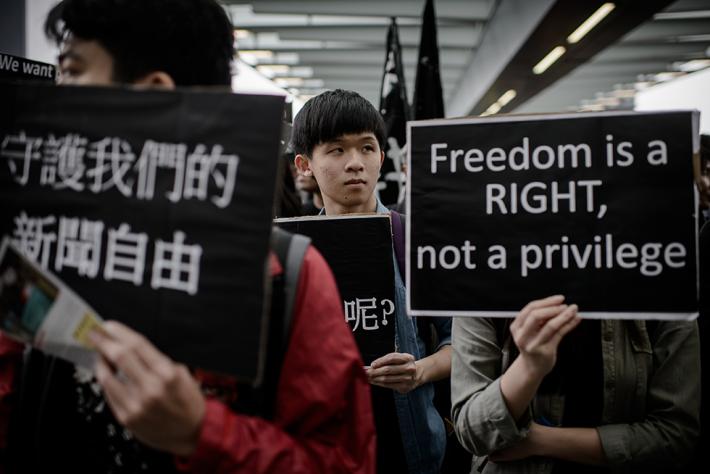
In its ideal form, democracy is a governing system based on the will and consent of the governed, institutions that are accountable to all citizens, adherence to the rule of law, and respect for human rights. It is a network of mutually reinforcing structures in which those exercising power are subject to checks both within and outside the state, for example from independent courts, independent media, and civil society. It requires an openness to changes in power, with rival candidates or parties competing fairly to govern for the good of the public as a whole, not just themselves or those who voted for them. It creates a level playing field so that all people, no matter the circumstances of their birth or background, can enjoy the universal human rights to which they are entitled and participate in politics and governance.
But democracy is more than just an ideal. It is a practical engine of self-correction and improvement that empowers people to constantly, peacefully struggle toward that ideal. When decisions or actions fall short of democratic principles, the tools of a democracy allow citizens and leaders to address those shortcomings, and to repair and strengthen the democratic system itself. This unique and inherent capacity for self-correction is what makes democracy so successful at delivering long-term stability and prosperity.
No democracy is without shortcomings, and those demanding democracy in places like Cuba and Myanmar are not demanding perfection. What they desire are the freedoms and the institutions that will allow them to create a better life and a more just society over time.
The State of Global Freedom
In every region of the world, democracy is under attack by leaders who demand unchecked power to advance their own interests, usually at the expense of minority groups, democratic activists, and a range of other perceived enemies. Freedom House tracks the ebb and flow of democratic governance worldwide in its annual reports and other research projects.
Freedom in the World, first published in 1973, is the most widely read and cited report of its kind, tracking global trends in political rights and civil liberties for 50 years. For each of the 210 countries and territories covered by the report, Freedom in the World analyzes the electoral process, political pluralism and participation, the functioning of the government, freedom of expression and of belief, associational and organizational rights, the rule of law, and personal autonomy and individual rights. Based on that data and analysis, each country and territory receives an aggregate score between 0 and 100, and a status of Free, Partly Free, or Not Free.
Nations in Transit evaluates the state of democracy across a 29-country region stretching from Central Europe to Central Asia. For each country in that region, Freedom House—in consultation with report authors, expert advisers, and regional reviewers—provides numerical ratings in seven categories that broadly represent the institutional underpinnings and health of liberal democracy. The ratings are based on a scale of 1 to 7, with 1 representing the lowest level of democracy and 7 the highest. These ratings focus on the health of the country's institutions in the broadest sense and are determined by considering the practical effect of actions by the state as well as nongovernmental actors.
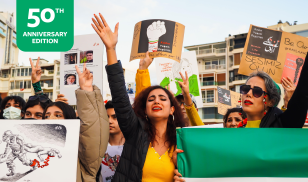
Dive into Freedom in the World 2023
Freedom House’s flagship annual report has tracked and assessed the condition of political rights and civil liberties around the globe for more than 50 years. It contains numerical ratings and analysis for 195 countries and 15 territories, as well as insightful commentary on the latest developments in the struggle for democracy.
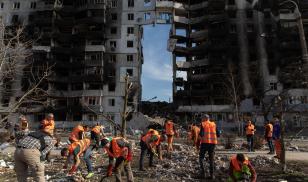
Explore the Latest Edition of Nations in Transit
Nations in Transit evaluates the state of democratic governance in the region stretching from Central Europe to Central Asia. For all 29 countries featured in Nations in Transit, Freedom House—along with a network of outside analysts and advisers—provides numerical ratings in seven categories that broadly represent the institutional underpinnings of liberal democracy.
Summit for Democracy
Freedom House has engaged actively in the first and second Summits for Democracy, an initiative led by the administration of US president Joseph Biden and held in partnership with other democratic governments around the world.
The Summit for Democracy offers leaders from more than 100 countries the opportunity to learn about the shared challenges faced by democratic governments. The event includes representatives of the state, civil society, philanthropic organizations, and the private sector. The participants are urged to make specific pledges to advance democratic ideals and support democratic movements at home and abroad.
Freedom House and the Summit for Democracy
bd3a.jpg)
2023 Summit For Democracy
The 2023 summit was cohosted by the United States, Costa Rica, the Netherlands, South Korea, and Zambia.
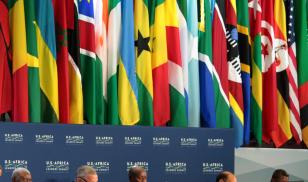
Government & Civil Society Declarations
One of the primary policy outcomes of the second Summit for Democracy was a governmental declaration of shared principles, but Freedom House and other civil society groups offered their own perspective.
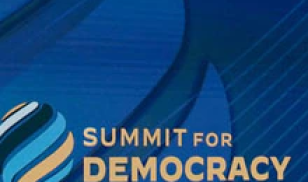
2021 Summit For Democracy
The inaugural Summit for Democracy was held in 2021. Read more about that event and review democracy ratings, scores, and areas of concern for each country, drawn from Freedom House's trusted research.
Democracy in the United States
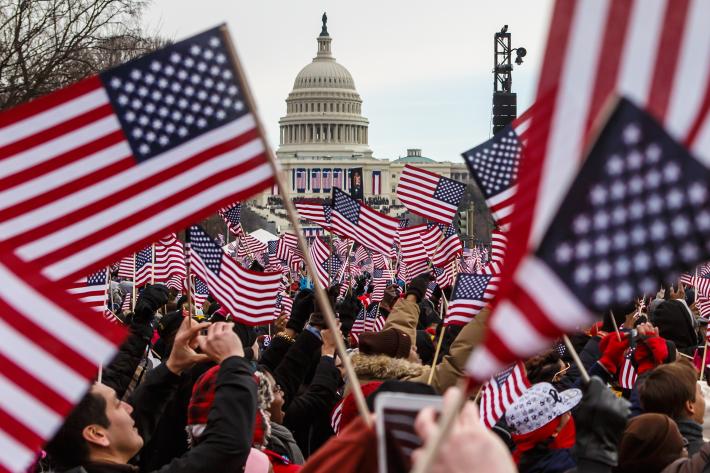
Freedom House believes that the United States, as the world’s most influential democracy, has an essential part to play in the global struggle for liberty. The country has a unique capacity and a moral obligation to cultivate alliances with free nations and lend support to democracy’s advocates in authoritarian or transitional settings.
A strong US democracy ultimately contributes to the freedom, security, and prosperity of all people by promoting stable democratic governance in other countries, helping to prevent armed conflicts and failed states, and upholding an international order based on human rights and the rule of law.
To play this role globally and to continue to safeguard the rights of Americans, the United States must be a strong and healthy democracy at home. The United States has faced domestic and international challenges, resulting in a weakening of American democracy over recent years.
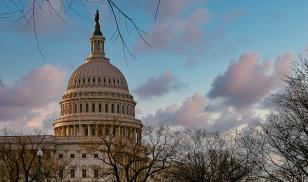
Visit Our US Democracy Hub
Learn more about the current state of democracy in the United States, review the work of the Task Force on US Strategy to Support Democracy and Counter Authoritarianism, and discover how a strong democratic government in the United States can help improve conditions for others worldwide.
Free & Fair Elections
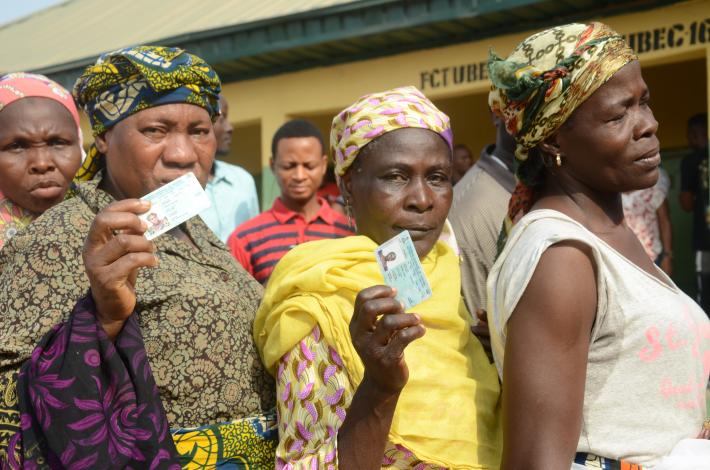
There is more to democracy than just free and fair elections, but there can be no democracy without them. Constant vigilance is required to protect this foundational freedom from the threats it faces, which range from old-fashioned fraud on election day to media manipulation and regulatory obstacles during the campaign period.
Freedom House works with local groups to promote voter participation and monitor elections.
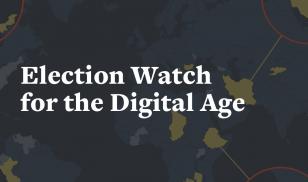
Election Watch for the Digital Age
Freedom House’s Election Watch project offers in-depth analysis ahead of key elections around the world, including those in Partly Free and Not Free countries. Each assessment informs technology companies, policymakers, and civil society organizations about the risks of human rights violations and digital interference ahead of an election.
Government Accountability & Transparency
A well-functioning democracy requires strong safeguards against official corruption, which can erode public services and damage faith in the democratic system if left unchecked. Corruption can also be exploited by incumbent politicians and foreign states to subvert the public interest. Any effort to expose, punish, and deter corruption must begin with an increase in transparency and accountability in government.
Freedom House research has documented a global decline in government accountability, transparency, and the rule of law. Authoritarian leaders commonly ignore the most basic elements of due process, misuse the justice system to protect allies and persecute opponents, and cultivate corruption as a means of buying loyalty and exerting influence. Freedom House supports local efforts to uncover malfeasance, strengthen the rule of law, hold human rights abusers to account, and promote judicial reforms.
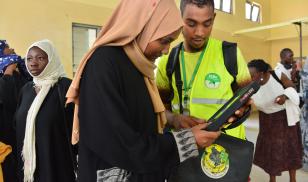
Government Accountability Hub
Learn more about regional programs aimed at increasing civic engagement, boosting the rule of law, and improving government transparency.

3579.png)





